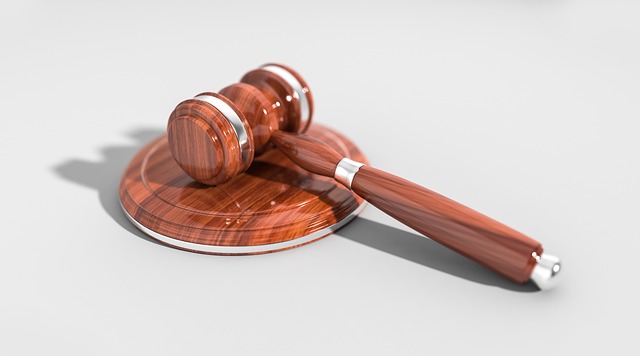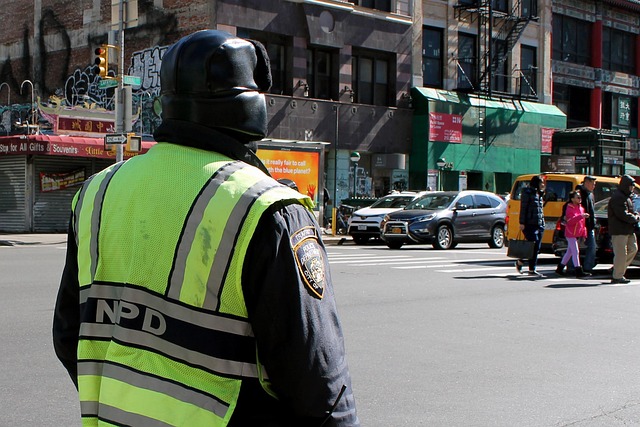Corporate crime investigations lead to high-stakes cases with significant financial and reputational risks. Attorneys and law enforcement collaborate through strategic negotiations in the class action lawsuit settlement process, aiming for swift resolution, ethical practices, and positive market impact. These settlements not only provide compensation but also serve as deterrents for future misconduct, fostering corporate accountability and improved business practices.
Corporate crime investigations are complex and multifaceted, requiring a nuanced approach to ensure justice and accountability. This article delves into the intricate world of understanding corporate crime investigations, highlighting key aspects like the role of law enforcement in settlement processes, class action lawsuits as a collective approach, effective negotiation strategies for fair compensation, and post-settlement impact and prevention measures. By exploring these elements, we offer a comprehensive guide to the class action lawsuit settlement process explained, emphasizing its significance in holding corporations accountable.
- Understanding Corporate Crime Investigations
- The Role of Law Enforcement in Settlement
- Class Action Lawsuit: A Collective Approach
- Negotiation Strategies for Fair Compensation
- Impact and Prevention Measures Post-Settlement
Understanding Corporate Crime Investigations

Corporate Crime Investigations delve into complex matters where businesses or their representatives engage in illegal activities. These investigations, often led by law enforcement and specialized agencies, target high-stakes cases that can have significant financial and reputational implications for companies. Understanding this process is crucial, especially when considering the potential outcomes, such as class action lawsuit settlement processes, which can be life-altering for affected parties.
In navigating these investigations, attorneys play a pivotal role in protecting their clients’ interests. A key strategy is to avoid indictment by proactively cooperating with investigators and ensuring compliance with legal standards. This approach not only helps in resolving issues swiftly but also demonstrates a commitment to upholding ethical business practices, which can be beneficial in the long term, particularly for companies looking to maintain their standing in the market.
The Role of Law Enforcement in Settlement

When it comes to corporate crime investigations, law enforcement plays a pivotal role in the settlement process, particularly in complex cases that often lead to class action lawsuits. The Class Action Lawsuit Settlement Process Explained involves multiple stages where law enforcement agencies collaborate with legal professionals to ensure justice and accountability. They work tirelessly to gather evidence, conduct interviews, and analyze financial records to build a robust case against wrongdoers.
Through their expertise and unwavering dedication, law enforcement contributes significantly to achieving winning challenging defense verdicts or, when appropriate, negotiating complete dismissals of all charges. With an unprecedented track record in corporate crime cases, their involvement guarantees a thorough investigation, leaving no stone unturned in the pursuit of justice for affected parties.
Class Action Lawsuit: A Collective Approach

In the realm of corporate crime investigations, one powerful tool in the fight against white-collar and economic crimes is the class action lawsuit. This collective approach allows harmed individuals to join forces and pursue justice together, rather than facing complex legal battles alone as general criminal defense strategies often do. By pooling their resources and sharing the financial burden, plaintiffs can build a stronger case against corporate wrongdoers.
The class action lawsuit settlement process explained involves several steps: identification of the affected party, notification of potential claimants, filing a complaint, discovery, certification of the class, trial or negotiation, and ultimately, the distribution of any recovered funds. This structured approach ensures that corporate and individual clients alike have an opportunity to participate and benefit from successful legal actions against those engaging in fraudulent or illegal activities.
Negotiation Strategies for Fair Compensation

In high-stakes cases involving corporate crime investigations, one crucial aspect that often garners significant attention is the negotiation process for fair compensation during the class action lawsuit settlement process explained. As these cases can have profound financial and reputational implications for corporations, strategic negotiations play a pivotal role in reaching mutually beneficial agreements. The goal isn’t merely to secure monetary compensation but also to foster trust and maintain relationships with both affected consumers and the philanthropic and political communities.
Effective negotiation strategies often involve a delicate balance between assertive advocacy for victim rights and a willingness to compromise. This dynamic is particularly important given the complex web of legal, ethical, and public relations considerations that accompany corporate crime investigations. A successful settlement not only provides redress to aggrieved parties but also demonstrates a commitment to transparency and accountability, which can help mitigate potential future liabilities and strengthen corporate governance practices.
Impact and Prevention Measures Post-Settlement

After a successful Class Action Lawsuit Settlement Process Explained, the focus shifts to mitigating potential future risks and ensuring corporate accountability. The impact of such settlements extends beyond monetary compensation; it serves as a powerful deterrent for future corporate misconduct. This is particularly crucial in fostering ethical business practices among both corporate and individual clients. Companies often invest heavily in enhancing their internal control systems, compliance programs, and risk management strategies post-settlement.
These measures aim to achieve extraordinary results by strengthening legal oversight, improving transparency, and promoting a culture of integrity within the organization. The general criminal defense strategy evolves from reactive to proactive, with companies implementing robust policies and training programs to prevent similar infractions. Such preventive actions not only safeguard corporate interests but also contribute to a more responsible business landscape.
Corporate crime investigations involve a multifaceted approach, from understanding complex legal frameworks to implementing preventive measures. As discussed, law enforcement plays a pivotal role in the settlement process, ensuring justice is served. The class action lawsuit stands out as a powerful tool for collective redress, facilitating negotiation strategies that lead to fair compensation. Ultimately, a comprehensive understanding of these mechanisms is essential for both victims seeking justice and businesses striving to uphold ethical standards in the face of potential investigations.






